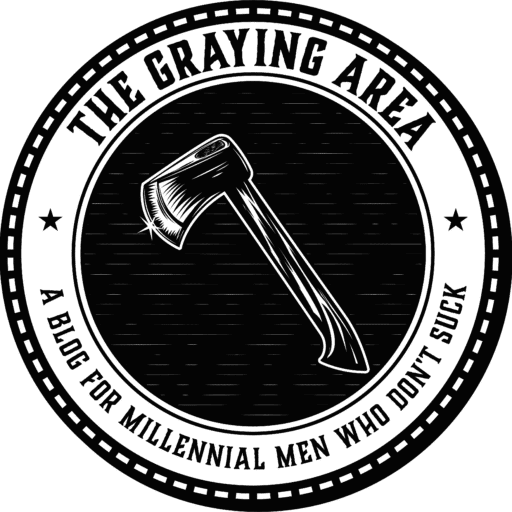The Side Hustle Series: How to Become a Freelance Writer
As I expand on The Side Hustle Series, it just felt natural to start with a side hustle idea near and dear to my heart: How to become a freelance writer. Back when I was still a police officer, I started a side hustle as a writer, and it developed into a full-time business very quickly.
There are so many other “freelancing guides” out there, and they’re mostly BS: They just want to sell you something.
Guys, I promise I’m not selling anything. I’m just going to explain what it’s like, what it takes, and how you can do it. No “10 Steps to Launching a Successful Freelance Writing Business” here. In fact, the steps to get started are the same steps to grow as large as you want. Those guides are nonsense.
The entire concept of freelance writing is scalable. It can be as small or as large as you’d like. If you want to write a piece a week because you enjoy it, this article will show you how. But, if you want to leave your day job and become a full-time freelancer, you’ll get an idea of what that’s like as well. I’ll cover advice that works for everything from blog writing to magazine writing to technical writing.
Let’s dig in.
How to Become a Freelance Writer: What it’s like
This is the important stuff. I’ll go over what it’s like so you’ll know right off the bat whether or not this article is worth your time. While I’m not exactly living like Ernest Hemingway, this line of work has its perks.

My routine
I’m the last one up in the morning in my house. My wife gets up hours before the sun, and my kids are usually up an hour or two ahead of me. I wake up, greet everyone in the house, make my coffee, sit down at my desk, and look at my schedule for the day. I’ll also take a look at whatever articles my editors have sent back for revision.
If it’s a Monday, Wednesday, or Friday, this is when I try to get my Instagram shot for the day. Sometimes it takes 20 minutes, and sometimes it takes several hours.
Right after I’m done shooting and editing, I’ll eat something and then write my first article for the day. That usually takes me right up until dinner. At that point, I shut down for a few hours, spend as much time with my family as possible, and decompress. In the nicer weather, we’ll usually try to get in an evening hike. It helps that we live at the foot of The Catskills.
After everyone settles in for the night, I’ll typically sit back down in front of the computer, answer some emails, and crank out another article. Between writing and editing, this usually takes me until 1, 2, or 3 am.
Occasionally, I’ll have a meeting with a new client or something along those lines throughout the week, but that’s generally how my Monday through Friday works. Pretty low-key, right?
Freelance writing pros and cons
Deciding to freelance could be one of the biggest decisions you make, so I want to offer as much info as possible. Let’s break this down by the pros and cons of freelance writing so you’ll have something to go on.

Pros: I pick my schedule
On some level, I’m lying to you. I rarely pick my deadlines. But I do get to choose when I work on my articles. I don’t punch a clock, and I’m ultimately not accountable for anything outside of my deadlines. I can write until 2 am and send work in if that works for me (which it does).
If I want to shoot clays on a Tuesday, I can. If my son has a baseball game on a Saturday, I’ll be there. If my wife wants to plan a last minute trip, I can do that too.
Cons: Editors..
The chances are that no matter the field or niche, or even the outlet, someone will be reading and editing your work. It’s never fun to revise an article but editors are necessary. Trained editors are usually great. Amateurs who think they’re trained editors are horrendous.
I once got an article back that said, “You use too much pronouns.” That relationship ended quickly. Another time, an editor was editing an article I was still working on. She was literally highlighting sentences I was typing. That was freggin’ ridiculous.
Pros: I pick my rate
Within reason, I choose how much I make on each article. When I take on a new client, I tell them how much I’m willing to write for. I have a full calendar at this point, and taking on new clients means shifting my focus from other clients. It has to be worth my time.
Also, to some degree, I decide how much money I make. If I want to make more money, I’ll write more. Could I run out of work? Sure, it’s possible. But with nearly 1,000 published articles to my name at this point, I will probably be able to pick up another client.
Cons: It’s not always creative
What I do is commonly referred to as “content writing,” and it’s not the sexiest writing genre. The point of my articles is to either sell a product or explain an idea. I’m rarely able to tell a story or bring a reader on a journey. That’s one of the main reasons I started The Graying Area.
To be fair, I do get to share my knowledge with others, and that can be awesome. I’ve written about cars, motorcycles, whiskey, pipe-smoking, home improvement, sports, hunting, watches, knives, and a bunch of other things I enjoy.
Pros: Job security
There was a point when I was justifying leaving police work for freelancing when I contemplated if it was too risky. But the truth is that freelancing is the least risky line of work I’ve ever been in. Not only am I not in physically dangerous positions anymore, but the chances of me completely losing my job is slim.
At this point, I have six regular clients. The odds of losing all six of those clients at the same time is pretty low. If I lose a client, I’ll find another. It’s not like starting from scratch because I lost my job and now I’m in a bind. There’s way less stress having that security.
Cons: If I don’t work..
.. I don’t get paid. I can take as many days off as I want to, and I’m always available for my family and friends. But if I take a week off, I’m not getting paid for it. I don’t get vacation time, sick days, or anything of the sort. I have to plan my time off, save for taxes, and pay my own healthcare (holy shit, do I ever..).
That’s just the nature of this business.
How to be a freelance writer without experience
Look, I’ll be honest with you: If you can’t spell — or you have no clue how to structure a sentence properly — you’re probably not going to make it far. But you don’t need a Master’s degree in English to be a successful freelance writer. You don’t even need a degree to get started.

Use your life experience
The great thing is that you probably already have the experience necessary to get started: Life experience, and you don’t need online writing courses to useit.. Start out writing about something you know. Write about cars, hunting, photography, men’s fashion, EDC, beekeeping, software development, raising puppies.. Whatever writing skills you have, that should be your first niche. Look for jobs in that niche and harp on that experience when you apply.
When I worked as an editor, I hired my fair share of writers that didn’t have experience. Sure, we weren’t paying the big bucks, but we were willing to offer almost unlimited articles. We were giving new writers an opportunity to build a portfolio. That’s what you need. You might have to pump out some low-paying articles for a while, especially if the outlet is slow to publish. But, within a few months, you’ll have a portfolio you can build on and write articles.
Once you have a decent portfolio of 20 or 30 articles, you can start asking for a bit more money, depending on the niche you’re in. Some niches, like B2B, pay well while others, like automotive or men’s fashion, don’t (but they’re often the most fun).
When I started freelancing, I wanted to be an automotive writer. When I applied, I made sure my resume and cover letter were meticulous. I mentioned that I’m a lifelong gearhead, went to school for automotive repair, and that I’m an FBI-certified negotiator (which meant I could relate to anyone). How’s that for a writer’s resume?
How to find freelance writing jobs online
Things are different than they used to be during the hay-day of the freelance journalist. Everything is online. You’ll apply, interview, write, submit, and edit everything from your home. Unless you need to cover an event or interview someone for a piece, chances are you’ll never have to leave.

The Sources
When I was searching for freelancing gigs, I used four main sources to find jobs:
- ProBlogger: ProBlogger is by far one of the best ways to find freelance writing gigs online. Ton of freelance writers uses it to find gigs. But, it relies on outlets to post their own positions instead of pulling from other job sites, so there might not be as many new positions each day.
- Indeed: If you’re looking for freelance writing opportunities online, you need to give Indeed a fair chance. There is a constant influx of new writing gigs, though sponsored posts often recycle and show up page after page, which does get annoying.
- FreelanceWritingGigs: If you’re only going to pick one source to job-hunt, FreelanceWritingGigs might be the best. This site pulls together all of the jobs from boards like ProBlogger, Indeed, Craigslist, and other sites. The postings are even broken down by content type, so it’s super easy to find what you’re looking for.
- LinkedIn: Once you’ve got a little bit of a portfolio going, looking for B2B clients on LinkedIn is a great way to break into the real money. I found my oldest client on LinkedIn, and I’m approached by new clients at least once a week.
Remember to look for work that plays to your strengths. There are so many writing gigs being posted that you’ll have a much better chance if you wait for one in your wheelhouse. If you’re a car guy, wait for an automotive writer position so you can use your life experience to land the job. If you’re a contractor or an experienced DIYer, wait until a construction or home improvement writer position comes up.
Just be clear in your cover letter as to why you’re qualified for the job.
Why more men should try freelancing
I don’t know the numbers, but there sure seems to be an imbalance between male and female freelancers. Even when I edited for a men’s magazine, an overwhelming majority of the applicants were female. Overwhelming.
Like four out of five. Maybe even more.
I’m not saying you’ll receive preferential treatment for being a man. In today’s day and age, that’ll get my entire blog ripped off the face of the internet. What I’m saying is that if a website, magazine, or blog is looking for a male perspective, they’re hard to find.
So while you might not have writing experience, you might be exactly what a particular outlet is looking for.
Freelancing Writing Tips of the Trade
So, if you’re considering getting started, I’ll offer a few helpful tips that I learned along the way. If I had known these from the start, I’d probably be a lot further along in my career.
Nail your application
If you’re applying to be a writer, you’d better nail the application. Your cover letter needs to be pristine, your resume needs to be clean, uniform, and free from errors, and you need to choose the very best articles to showcase your work.
As a hiring editor, I can tell you that the first thing I looked at was someone’s cover letter. I wanted to know why they were right for the job and screen them for so much as the smallest typo. There are just too many applications to sort through. If there’s an excuse to get rid of an applicant, I’ll take it. Keep that in mind.
Pay for Grammarly
If you’re going to be writing a few articles a week, you need to pay for Grammarly. The basic, free version doesn’t give you the storage, flexibility, and customization that the paid version does. While Grammarly is far from perfect, it’s certainly a big help toward creating error-free content.
Use HemingwayApp
When you write a piece, you should be putting it through HemingwayApp. It will help ensure you’re using the appropriate amount of passive voice and that your sentences aren’t too long. Long sentences and long blocks of text suck: HemingwayApp will help you get a handle on them.
Listen to your work
The average person cannot proofread their own work accurately. It’s just not possible. They wrote every sentence, so they know what they’re supposed to say. Even if they left a word out, chances are their brain would just fill it in, and they’ll never notice it.
But, you can listen to your work. I pay for a site called TTSReader, and for just a few dollars a month, I have my articles read out loud to me while I follow along in the Google doc. This is the best way to find errors, omissions, boring sentences, and other nagging little issues that can plague an article.
Your turn
What do you think? Does freelance writing sound like something you’d be interested in? It’s an awesome side hustle to make some extra cash, but also one of the best side hustles for writers that are employed full-time. It’s also a great career if you’re looking for a change of pace. And, chances are you already have what it takes.
If you guys have any questions at all, feel free to ask in the comments below and I’ll get back to you as soon as I can.




